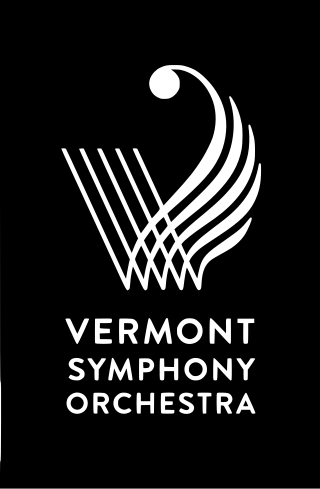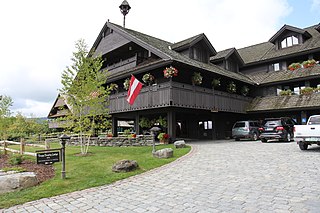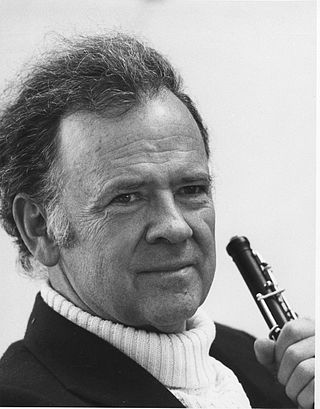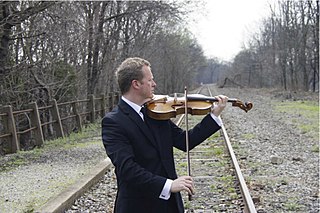
Sir Alan Charles MacLaurin Mackerras was an Australian conductor. He was an authority on the operas of Janáček and Mozart, and the comic operas of Gilbert and Sullivan. He was long associated with the English National Opera and Welsh National Opera and was the first Australian chief conductor of the Sydney Symphony Orchestra. He also specialized in Czech music as a whole, producing many recordings for the Czech label Supraphon.

The Vermont Symphony Orchestra (VSO) is a symphony orchestra based in, and supported in part by, the U.S. state of Vermont. It is a 501(c)(3) corporation. It is one of the few, and the oldest, state-supported symphony orchestras in the United States.

David Geringas is a Lithuanian cellist and conductor who studied under Mstislav Rostropovich. In 1970 he won the gold medal at the International Tchaikovsky Competition. He also plays the baryton, a rare instrument associated with music of Joseph Haydn.

The Rochester Philharmonic Orchestra (RPO) is an American orchestra based in the city of Rochester, New York. Its primary concert venue is the Eastman Theatre at the Eastman School of Music.
Gordon Hunt is a British musician and conductor. Regarded as one of the world's leading oboists, Hunt has served as principal oboe of the Philharmonia and London Chamber orchestras, a professor at the Guildhall School of Music and Drama, and an Honorary Associate of the Royal Academy of Music.
Yeol Eum Son is a world renowned South Korean classical pianist. She is particularly esteemed as an interpreter of the Classical era of composers, especially Haydn, Mozart, Beethoven, as well as such later composers as Mendelssohn, Schumann, Liszt, Rachmaninoff and Ravel. Son regularly performs as soloist with prominent orchestras and eminent conductors.

Symphony Nova Scotia is a Canadian orchestra based in Halifax, Nova Scotia, Canada. Its primary recital venue is at the Dalhousie Arts Centre's Rebecca Cohn Auditorium.
Melvin Kaplan was an American oboist, concert manager, and formerly a teacher at the Juilliard School for 25 years. He was for many years a featured performer and lecturer at the Metropolitan Museum of Art. Kaplan is a founding member of both the New York Chamber Soloists and the Festival Winds, though he is perhaps best known as Artistic Director of the original Vermont Mozart Festival, which he cofounded in 1974 with William Metcalfe, a conductor and professor at the University of Vermont. He received the Governor's Award for Extraordinary Contribution to Vermont in 1990 and a Lifetime Achievement Award from the Vermont Arts Council in 1998.
Daniel Hege is an American orchestral conductor. He is currently the music director of the Wichita Symphony Orchestra and the Binghamton Philharmonic, and is the principal guest conductor of the Tulsa Symphony Orchestra. Hege previously served as the music director of the former Syracuse Symphony Orchestra. He also makes numerous guest appearances with orchestras and music festivals across the country.

Matthias Bamert is a Swiss conductor and composer.
Ernst Peter Johannes Maag was a Swiss conductor.
Paul Goodwin is an English conductor and former oboist.

The Trapp Family Lodge is a 2,500-acre (10 km2) resort located in Stowe, Vermont. It is managed by Sam von Trapp, son of Johannes von Trapp of the Austrian musical family, the Trapps. It was formerly known as Cor Unum.

Paul Dean is an Australian clarinetist, composer and conductor

Ivan Podyomov is a Russian oboist and currently principal oboe of the Royal Concertgebouw Orchestra.
Gábor Takács-Nagy is a Hungarian violinist and conductor. He began violin studies at age 8. He attended the Franz Liszt Academy of Music, where he won the Jenő Hubay prize. His teachers at the Liszt Academy included Ferenc Rados, András Mihály, and György Kurtág.
The Orchestra Mozart or Orchestra Mozart Bologna is an Italian orchestra based in Bologna.

Ray Still was an American classical oboist. He was the principal oboe of the Chicago Symphony Orchestra for 40 years, from 1953 to 1993.

Brett Deubner is an American violist. He has performed as concerto soloist with over 70 orchestras on four continents.

Lois Wann was an American oboist who was one of the well-known American oboists of the 20th century. She performed as a soloist in chamber music and concertos, specializing in early music but also playing contemporary works. Several contemporary composers wrote pieces for her, including Darius Milhaud. Reviews of Wann's concerts often highlighted her technique and musicianship. As an orchestral musician, she was an early example both of a woman who played the oboe in a professional American orchestra and of a woman principal in a professional orchestra. She spent much of her career in New York, where she was a noted teacher of the oboe, at the Juilliard School and elsewhere.












